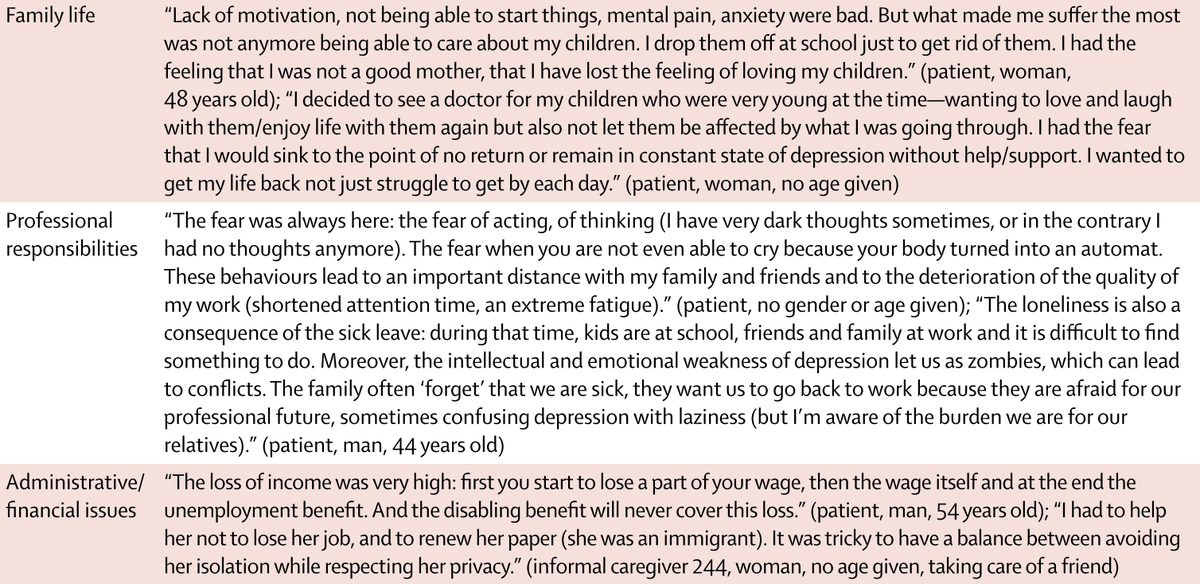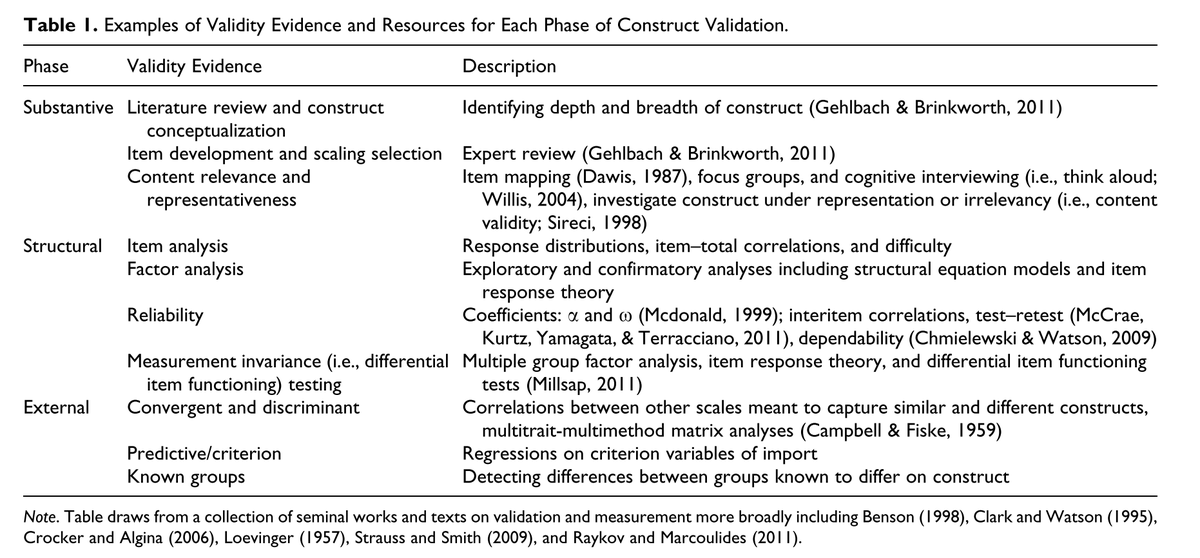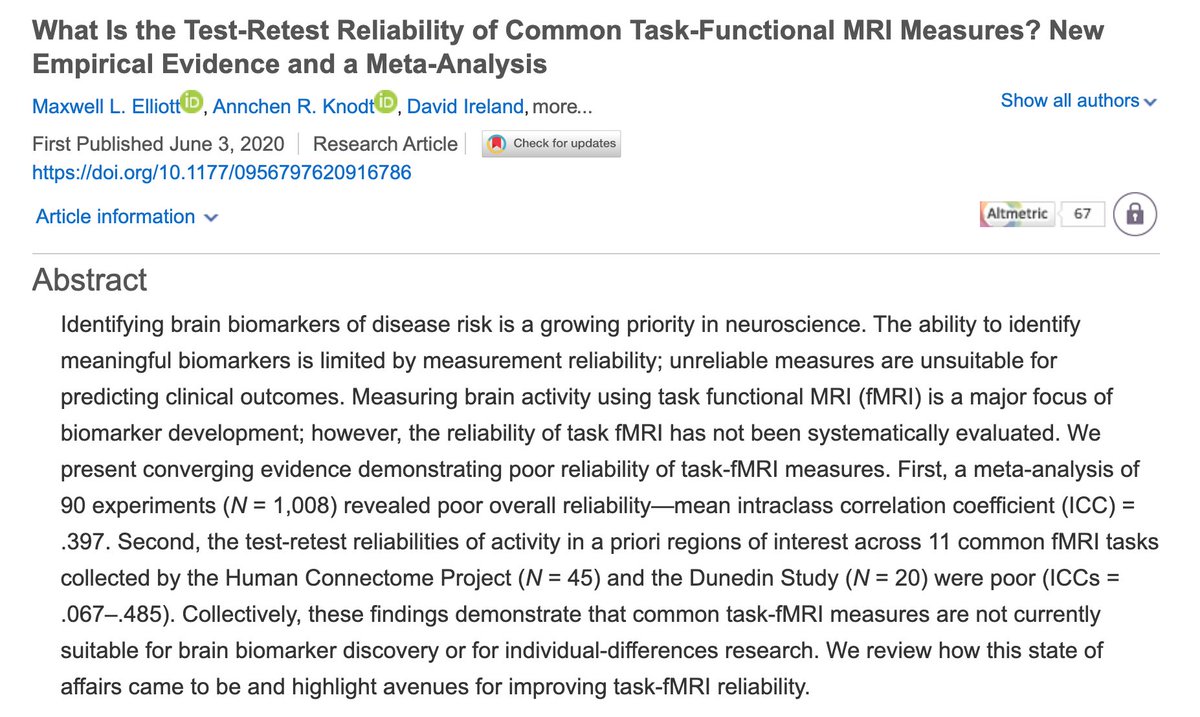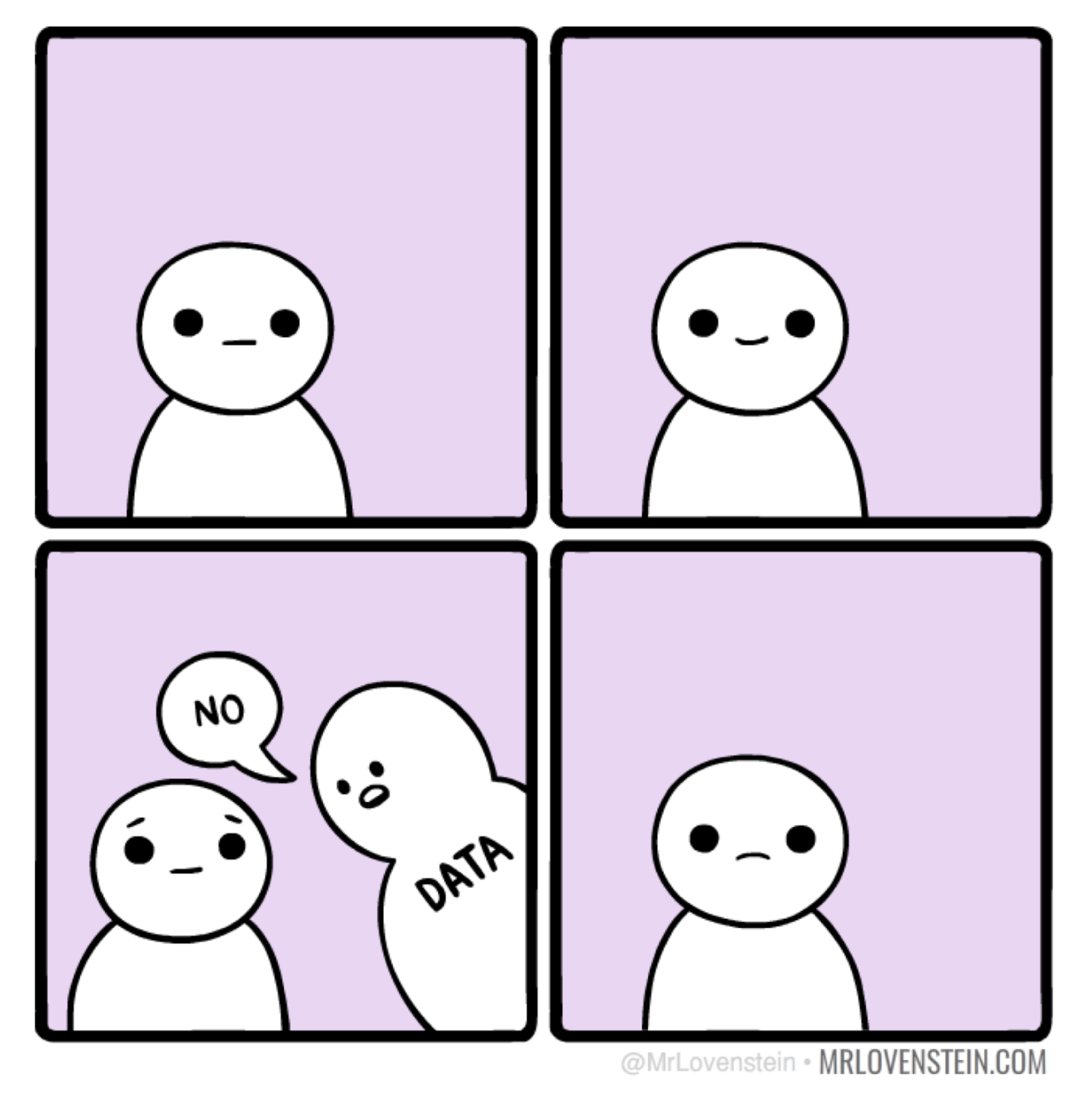Details in 🧵below. If you RT only one of my tweets this year, make it this one.
sciencedirect.com/science/articl…
“My mother told me ‘I did not know that humans could suffer so much’. She lost any interest. I wished she could go back to what she was before. I could not recognize her” (informal caregiver, woman, aged 49 years)
“The lack of energy and motivation leads to stopping what you previously enjoyed. Or motivation makes it difficult to maintain your daily routine and avoid self-negligence. Also, you can feel that your neurological abilities are low” (patient, other gender, aged 23 years)
“The worst is my weakness. I have no energy and an abyssal fatigue. I cannot get out of my bed. I cannot do anything in a day, and I can’t see no exit for this” (patient, woman, aged 44 years).
“I felt I was worthless, useless and I did not deserve to be loved. I always blamed me even when I was doing ok. I hated me always continuously and for no reason” (patient, woman, aged 37 years).
“I was not able anymore to assume my daily living and I felt ashamed of my own place, and guilty, so I did not invite anybody home anymore, I was self-isolating” (patient, man, aged 36 years).
“It’s hard to make things up after 12 years. I feel bitter because of all these wasted years, which could have been efficient (find an interesting job, make friends, find a husband, have children, etc.)” (patient, woman, aged 31 years).
“Social isolation and loneliness are the worst. When I finally recovered and went back to the world, I realized how social isolation made me lose a range of competencies. I had to learn again each single little thing of daily life” (patient, woman, aged 38 years).
“I had to hide my depression not to make my relatives afraid, or not to be considered as crazy” (patient, woman, aged 42 years).
“It is difficult to consider the symptoms as the result of a disease and not as a weakness. This is why I felt guilty and ashamed of being sick” (patient, woman, aged 31 years).
Thanks to all participants who spent so much time on the survey, talking about their personal histories & lived experiences, & telling us about outcomes that matter to them. Pls consider following 1st author @ChevanceAstrid for similarly important work in the future.
🧵.











